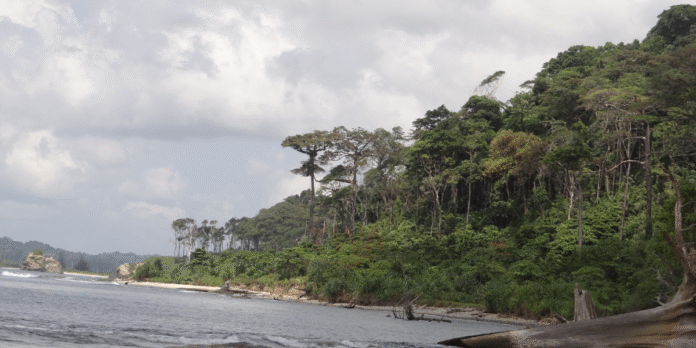The Andaman and Nicobar Territorial Congress Committee has mounted strong opposition to the proposed Great Nicobar Island Development Project, with its campaign committee chairman TSG Bhasker urging the administration and the Centre to reconsider the plan. In a letter addressed to the Lieutenant Governor and marked to senior dignitaries including the Prime Minister and Union ministers, Bhasker described the project as a hasty and ill-conceived initiative that could trigger both natural and human disasters.
Central to his objections are concerns about the project’s impact on indigenous communities. He highlighted the vulnerability of the Shompen, a nomadic hunter-gatherer tribe that has historically lived in isolation within the island’s forests. Bhasker alleged that the No Objection Certificate granted by the Tribal Council was issued without full disclosure and that the Shompen were excluded from the consultation process. According to him, the project threatens their survival and risks cultural and demographic extinction.
Environmental concerns feature prominently in the opposition. The project area lies within a United Nations–recognized Biosphere Reserve that is home to endangered species including Leatherback turtles, Saltwater Crocodiles, the Nicobar Long-Tailed Macaque, and the Nicobar Tree Shrew. Bhasker argued that large-scale development would lead to irreversible biodiversity loss, disrupt fragile ecosystems, and undermine long-term conservation efforts.
The seismic vulnerability of the region adds another dimension to the critique. Great Nicobar falls in a highly active seismic zone with a history of massive earthquakes and tsunamis occurring every few decades. Bhasker said the Environmental Impact Assessment report lacks robust disaster risk evaluation, warning that future seismic events could destroy the infrastructure, leaving behind oil spills, chemical leaks, and debris with devastating consequences for the island’s ecosystem.
He also questioned the accuracy of official figures regarding deforestation. While the government has stated that 10 lakh trees will be felled, Bhasker suggested the real number could be higher once work begins. The plan to compensate by planting trees in Haryana was dismissed as scientifically unsound, since replanting outside the ecological context of the Nicobar Islands cannot replace lost biodiversity.
Doubts were also raised about the oversight mechanisms. Bhasker criticized the composition of the High-Powered Committee formed by the National Green Tribunal, noting that it lacked representation from independent experts or NGOs. He argued that the predominance of officials from ministries that approved the project compromises the committee’s objectivity.
The letter also touched on economic and administrative issues. Bhasker pointed to discrepancies in land valuation, observing that while land in remote Hut Bay is priced at ₹1,000 per square metre, circle rates in Campbell Bay, the proposed project site, range from just ₹113 to ₹180 per square metre. He described this as possible undervaluation aimed at acquiring land cheaply.
Another concern is the proposed destruction of coral reefs and mangroves, both critical for marine biodiversity and coastal protection. Bhasker questioned the technical expertise of ANIIDCO, the implementing agency, in handling sensitive measures such as coral transplantation. He said that without credible expertise, the mitigation strategies could fail, leaving long-term ecological damage.
Strategically, he suggested a more sustainable alternative: expanding the existing Navy airstrip for defence and security purposes instead of building a new airport and settlement. He argued that the administration should focus on addressing the unmet needs of the islands’ current population of around 4.5 to 5 lakh people before planning to accommodate an additional 4 lakh residents. Shortages in healthcare, water, roads, and education, according to Bhasker, remain unaddressed.
Concluding his letter, Bhasker urged the administration and the Centre to review the project in light of its strategic, tribal, ecological, and geological implications. He warned that once implemented, the negative impacts could be irreversible, threatening not just the island’s environment but also its cultural and social fabric.
The opposition reflects growing debate around the Great Nicobar project, which has been promoted as a major infrastructure and investment initiative. With fresh concerns being raised about its environmental and social costs, the proposal faces renewed scrutiny as stakeholders weigh development ambitions against long-term sustainability.






